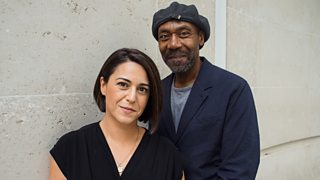
Giuseppe Verdi: 'Re dell'abisso, affrettati' from Un ballo in maschera
On 7 January 1955, the great American contralto Marian Anderson made history by becoming the first African American singer to perform on the stage of the Metropolitan Opera House.
On 7 January 1955, the great American contralto Marian Anderson made history by becoming the first African American singer to perform on the stage of the Metropolitan Opera House. The director of the Met, Rudolf Bing was determined to break the cycle of segregation that had characterised the Met and so many other areas of American public life. Just 20 days later, the baritone Robert McFerrin (father of the contemporary vocalist Bobby McFerrin) became the first African American male to perform on the Met Stage. But it was Marian Anderson who hit the headlines.
Anderson鈥檚 Met debut was, of course, a big step in the right direction, but her triumph was not a straightforward one. In a 1980s documentary film about her life, her friends express their frustration that she was 57 years old when the call from the Met finally came. She had been a superstar in concert and recital for decades; a well-known figure on radio and television. Now she was past her vocal prime and completely inexperienced in stagecraft. Even if the public reaction and the reviews were enthusiastic, there was an inevitable sense of lost opportunity. 21st century commentators have also pointed out that the role Anderson was assigned for her Met debut was, in today鈥檚 terms, problematic. After all, the potion-mixing sorceress Ulrica in Verdi鈥檚 Un Ballo in Maschera - an exotic, an outsider - is hardly racially neutral. Perhaps colour blind casting was too much to expect amid the fevered racial politics of 1950s America.
These were the politics that shaped Anderson鈥檚 career. She had been a prodigiously talented young musician in Philadelphia, finding her voice as a girl in church and giving concerts to pay for private singing lessons when a conservatoire receptionist told her that "we don鈥檛 take black people here". Eventually, she travelled to Europe to build a career during the 1920s and early 1930s. In France and Germany, her colour was - for the time being - not an issue. Toscanini heard her sing in Salzburg and said "a voice like that is heard once in a hundred years". It was in Europe that she developed her skill in French Chanson, in Italian song and, above all in German Lieder.
Anderson鈥檚 voice had a huge range, rich in every register from the top to the bottom. People who saw her perform described her stage presence as "regal" or "aristocratic". When the build-up to war in Europe forced Anderson back to the United States, her artistry stood in dignified opposition to what was expected from people of colour in arts and entertainment in the US. When her agent tried to book a concert for her in Constitution Hall, Washington DC, in 1936, the Daughters of the American Revolution (who ran the Hall) invoked their whites-only policy. First Lady Eleanor Roosevelt got wind of this, publicly resigned from the DAR and a replacement performance was organised on Easter Sunday on the steps of the Lincoln Memorial to an unsegregated crowd of 75,000 people.
This is one of 100 significant musical moments explored by 麻豆社 Radio 3鈥檚 Essential Classics as part of Our Classical Century, a 麻豆社 season celebrating a momentous 100 years in music from 1918 to 2018. Visit bbc.co.uk/ourclassicalcentury to watch and listen to all programmes in the season.
This is an excerpt from a recording of Marian Anderson with the Metropolitan Opera Orchestra and Chorus with conductor Dimitri Mitropoulos.
Duration:
This clip is from
Featured in...
![]()
The music of Our Classical Century—Our Classical Century
100 recordings to celebrate 100 years of exciting, inspirational, rule-busting music.
More clips from Our Classical Century
-
![]()
Step outside your musical tribe
Duration: 02:49



